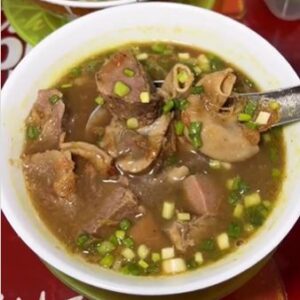KOMPAS.com – Garlic is one of the favorite kitchen spices for many people because of its strong taste and distinctive aroma.
This spice is often used in various dishes such as soups, sauces, pizza and pasta. Apart from enriching the taste, garlic is also known to have health benefits due to its medicinal properties.
However, can consuming too much garlic be dangerous?
Also read: 11 Scientifically Proven Benefits of Garlic, Lowering Cholesterol and High Blood Pressure
The following are the effects of consuming too much garlic and how much should be consumed.
Most side effects of eating garlic
Even though garlic is beneficial for health, excessive consumption can cause certain side effects, such as:
1. Increases the risk of bleeding
One serious risk of consuming too much garlic is an increased risk of bleeding, especially if you are taking blood-thinning medication or are about to undergo surgery.
Garlic has antithrombotic properties that can prevent the formation of blood clots. In one report, a person experienced excessive bleeding after regularly consuming 12 grams of garlic (around 4 cloves) per day before surgery.
Another report also stated that someone experienced excessive bruising after surgery due to supplements containing fish oil and garlic concentrate.
If you are taking certain medications or have surgery, it is important to consult a doctor before adding garlic to your diet or using garlic supplements.
2. Onion-smelling breath
Garlic contains sulfur compounds that provide many health benefits, but these compounds can also cause bad breath, especially if garlic is consumed in large quantities.
Also read: Can Garlic Fertilizer Fertilize Plants?
This smell is more pronounced when consuming raw garlic, because the cooking process can reduce the content of sulfur compounds.
Various home remedies, such as chewing parsley or drinking milk, can help treat garlic-related breath odor.
3. Digestive problems
Garlic is rich in fructans, a type of carbohydrate that can cause bloating, gas and stomach upset in some people.
 Illustration of how to cure stomach acid quickly?
Illustration of how to cure stomach acid quickly?People who have an intolerance to fructans often cannot absorb this substance completely in the small intestine. As a result, fructans enter the large intestine and undergo fermentation, which can trigger digestive disorders.
For those following a low FODMAP diet to reduce digestive disorders, garlic consumption needs to be limited.






